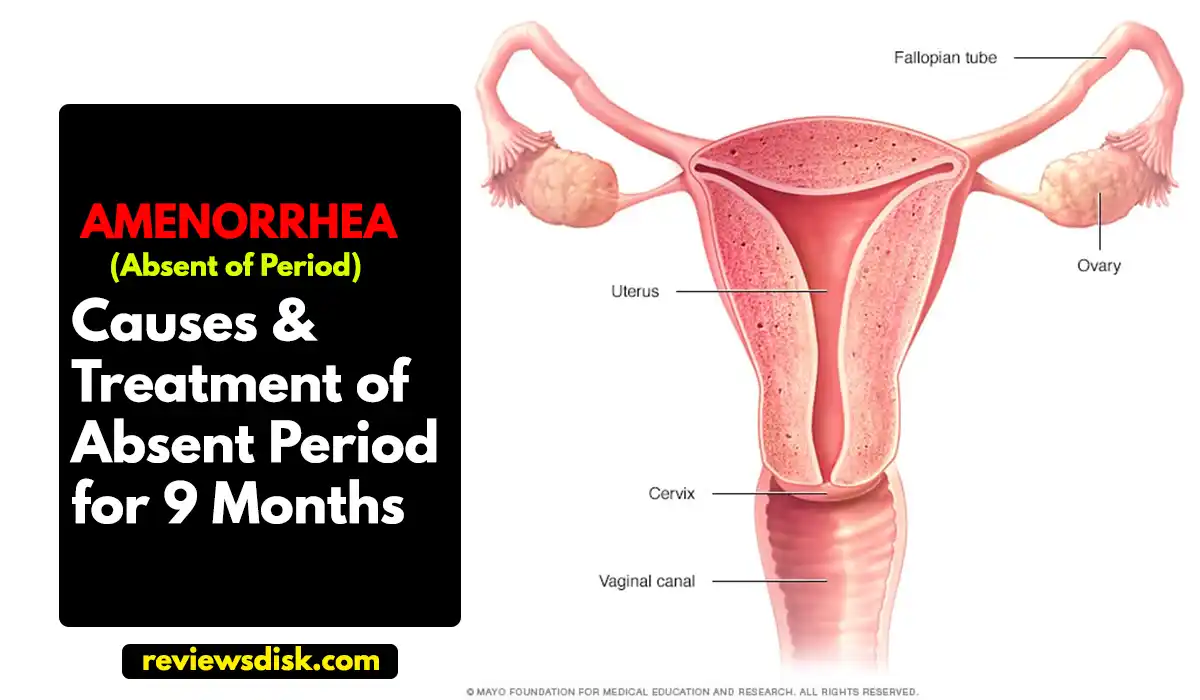Introduction: The Importance of Understanding Menstrual Cycles
Causes and Best Treatment of Absent Periods for 9 Months, Have you ever wondered why your periods have taken an unannounced break? It’s not just a calendar blip; it could be your body sending a message. Understanding your menstrual cycle isn’t just about marking days on a calendar – it’s about understanding your body, your health, and even your emotions.
Amenorrhea is missing one or more periods. Talk to your healthcare provider if you’re older than 15 and haven’t gotten your first period (primary amenorrhea) or you’ve missed a period for three or more months (secondary amenorrhea). Amenorrhea is often a sign of a treatable condition. With treatment, your regular menstrual cycle will usually resume. “Causes and Best Treatment of Absent Periods for 9 Months”
Causes and Best Treatment of Absent Periods for 9 Months
What is Amenorrhea?
Amenorrhea refers to the absence of menstrual periods, and it can be categorized into two main types:
Primary Amenorrhea: This is when menstruation hasn’t started by age 15. Can you imagine waiting and waiting, yet no sign of that familiar monthly visitor?
Secondary Amenorrhea: This is when periods that were once regular become absent for at least three months, or in our case, as long as nine months. Imagine a friend who visits monthly but then just stops showing up!
Common Causes of Absent Periods
The reasons behind the no-show can be numerous:
Hormonal Imbalances: Ever thought of hormones as messengers in your body? When they’re imbalanced, it’s like those messages get lost, leading to missed periods.
Stress and Mental Health: Did you know that your brain and your ovaries chat regularly? Stress can disrupt this conversation, leading to missed cycles.
Weight and Eating Disorders: Just as an underfueled car won’t run, an undernourished body might stop menstruating.
Medications and Therapies: Some drugs, like antidepressants or chemotherapy, can play hide and seek with your periods.
Other Medical Conditions: From thyroid disorders to PCOS, several health issues can disrupt your cycle. Isn’t the human body complex? “Causes and Best Treatment of Absent Periods for 9 Months”
Diagnosis and Testing
If your periods are playing hide-and-seek, how do you find them? Doctors may recommend blood tests, ultrasounds, or even MRI. It’s like detective work, but for your health!
Treatment Options
Once you’ve found the culprit, what next? Depending on the cause, there’s a buffet of solutions:
Lifestyle Changes: Sometimes, simply altering your diet, exercise routine, or stress management can bring back your period. Remember the car analogy?
Medications: From birth control pills to specific hormone therapies, medications can be the key to unlocking your menstrual cycle.
Therapies: In certain cases, counseling or physical therapy might be recommended. It’s like giving your body the nudge it needs.
When to See a Doctor?
If your period goes AWOL for more than three months, or if you’re worried at any point, it’s time to consult a healthcare professional. It’s always better to be safe than sorry, right? “Causes and Best Treatment of Absent Periods for 9 Months:”
Conclusion: Taking Control of Your Health
Menstruation, or the lack thereof, is a conversation between your body, mind, and environment. It’s not just about reproduction; it’s a vital sign of your overall health. So, if your periods are MIA, it’s essential to listen to that silent alarm and act. After all, your health is in your hands! “Causes and Best Treatment of Absent Periods for 9 Months”
FAQs:
Can exercise affect my menstrual cycle?
Absolutely! Extreme exercise or significant changes in your routine can influence periods.
I’m not sexually active. Should I still be concerned about a missing period?
Yes. While pregnancy is a common cause, many other factors can lead to absent periods.
Are there natural ways to induce periods?
Some believe in natural remedies like ginger or parsley, but always consult a healthcare professional before trying anything new.
Can absent periods affect fertility?
Possibly. Consistent amenorrhea might indicate issues with ovulation, impacting fertility.
Are there any risks associated with prolonged amenorrhea?
Yes, including bone loss or osteoporosis due to reduced estrogen levels.
